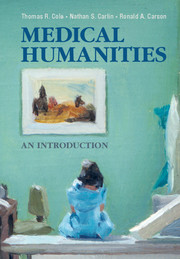Book contents
Part I - History and Medicine
Summary
The history of medicine is the oldest discipline of medical humanities. Actually, medical history, whose origins lie in the late nineteenth century, long predates and helps us to understand medical humanities, which is barely forty years old. At the turn of the twentieth century, distinguished American male physicians and educators first turned to history as a means of humanizing medicine. Although there are now serious doubts, debates, and visions, and the field has grown more diverse, this mission in medical education has remained remarkably stable. With the recent rise, however, of medical humanities and bioethics, and the professionalization of the field of the history of medicine, the influence of history in medical education has been overshadowed by ethics, literature, the social sciences, and to a growing extent, religion/religious studies and media studies. One counterbalancing trend has been public policy historians such as Susan Reverby (1946–), David (1937–) and Sheila Rothman (1939–), David Rosner (1947–), Gerald Markowitz (1944–), and Howard Markel who have been active in developing programs in history, ethics, and public health, housed outside of medical schools. Another is the testimony of physicians whose lives and work have been shaped by their knowledge of history. History is an exciting and essential way of understanding medicine and health care, which are never static but rather constantly changing and evolving.
- Type
- Chapter
- Information
- Medical Humanities , pp. 19 - 25Publisher: Cambridge University PressPrint publication year: 2014



